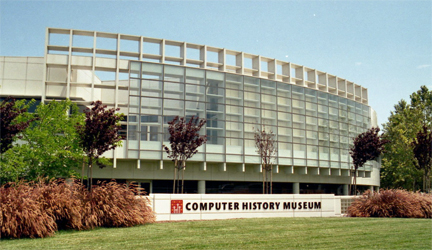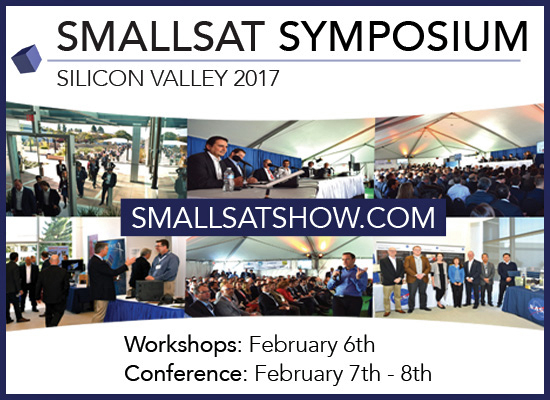
An interesting news article has been published by SpaceNews, authored by Mike Gruss, that informs readers concerning the issue of smallsats and their nuisance factor for space situational awareness.
Small satellites and cubesats should not be viewed as a major contributor to congestion or in creating space debris in low earth orbit, at least based on recent history, a panel of experts here said Sept. 23.
“We need to change our attitude about cubesats. They are not a nuisance,” Bhavya Lal, a research staff member at the Institute of Defense Analyses’ Science and Technology Policy Institute, said during a panel discussion. “[They are] a very important part of our satellite ecosystem.”
Speaking at the AMOS conference, Lal said all but one cubesat has been tracked by the Air Force’s Joint Space Operations Center and 18th Space Control Squadron, which issues collision warning messages. Because of that tracking, the Air Force has been able to ensure cubesats do not crash into other satellites and create unwanted debris.
Lal said Air Force data shows cubesats have forced other satellites to maneuver and avoid a collision three times this year, twice in 2015 and three times in 2014. For perspective, U.S. Strategic Command has said all operators performed a total 121 maneuvers in 2014 to avoid potential collisions.
The panel marked one of the first large-scale discussions between two pockets of the space community that often have little overlap: the space situational awareness crowd and the small satellite proponents.
Cubesats have been derisively – and commonly – referred to as “debris sats” by some operators in the space community. Those operators view cubesats as a danger because many of them are so small they do not have propulsion systems and depend on atmospheric drag to pull them toward re-entry within 25 years, which is the government standard. They are also difficult to initially track, especially when they are launched in batches from the International Space Station.
- See more at: http://spacenews.com/are-cubesats-a-nuisance-to-space-situational-awareness-efforts/#sthash.JyRx2z0b.dpufSmallsats and cubesats should not be viewed as a major contributor to congestion or in creating space debris in LEO, at least based on recent history, a panel of experts presenting at the AMOS conference in Maui, Hawaii, said on September 23rd.
“We need to change our attitude about cubesats. They are not a nuisance,” Bhavya Lal, a research staff member at the Institute of Defense Analyses’ Science and Technology Policy Institute, said during a panel discussion. “[They are] a very important part of our satellite ecosystem.”
Speaking at the conference, Lal said all but one cubesat has been tracked by the Air Force’s Joint Space Operations Center and 18th Space Control Squadron, which issues collision warning messages. Because of that tracking, the Air Force has been able to ensure cubesats do not crash into other satellites and create unwanted debris.
Lal said Air Force data shows cubesats have forced other satellites to maneuver and avoid a collision three times this year, twice in 2015 and three times in 2014. For perspective, U.S. Strategic Command has said all operators performed a total 121 maneuvers in 2014 to avoid potential collisions.
The panel marked one of the first large-scale discussions between two pockets of the space community that often have little overlap: the space situational awareness crowd and the small satellite proponents.
Cubesats have been derisively—and commonly—referred to as “debris sats” by some operators in the space community. Those operators view cubesats as a danger because many of them are so small they do not have propulsion systems and depend on atmospheric drag to pull them toward re-entry within 25 years, which is the government standard. They are also difficult to initially
To read the remainder of this informative article, we recommend you select this direct link to the SpaceNews story...
..In The Pursuit Of SmallSat Expertise…
SmallSat Symposium—Silicon Valley 2017
Workshop: Monday, February 6th, 2017
Symposium: Tuesday, February 7th — Wednesday, February 8th
Venue: Computer History Museum, Mountain View, California
As with any industry trade event, one of the major draws as far as the time commitment necessary for attendance most assuredly revolves around the expertise that will be offered to those who participate... is the ROI for event participation and the hoped-for knowledge acquisition worth a company's or an individual's engagement at the venue?
For the SmallSat Symposium, just reading through the list of subject-matter experts who will be presenting at this event should offset any doubts as to the value of "being there." SmallSat Symposium—Silicon Valley in 2017 will offer a superior blending of expertise and unparalleled networking opportunities with the industry's smallsat, SATCOM and MILSATCOM actors.

This extraordinary event will be held at the Computer History Museum in Mountain View, California, which happens to be a perfect location for the technology-rich smallsat environs.
Listed below are the accepted speakers to date, in alphabetical order, for the SmallSat Symposium.
The Speakers…
- Chad Anderson, Managing Director
- Space Angels Network
- Eric Anderson, President
- And One Technologies
- Jason Andrews, CEO
- Spaceflight Industries
- David A. Anhalt, Vice President and General Manager
- Iridium PRIME
- Jenny Barna, Launch Manager
- Spire Global, Inc
- Chris Baugh, President
- NSR - Northern Sky Research
- Chris Boshuizen, Principle
- Data Collective VC
- Peter Beck, CEO & CTO
- Rocket Lab
- Dr, Sami BenAmor, Director of Marketing
- Thales Alenia Space
- John Booher, Partner
- Hogan Lovells
- Phil Carrai, President
- Kratos Technology and Training Division
- Dr. Sean Casey, Managing Director
- Silicon Valley Space Center
- Satish Chetty, Co-Founder and VP of Software Systems
- Hera Systems
- Carissa Christensen, Managing Partner
- The Tauri Group
- Craig Clark, Founder
- Clyde Space Ltd.
- Robert R. Cleave, Director, Vice President, Commercial Space
- Lockheed Martin
- Mike Collett, Founder and Managing Partner
- Promus Ventures
- James Crawford, Founder and CEO
- Orbital Insight
- Randy Culver, CEO
- AMERGINT Technologies
- Erik Daehler, Director Product Innovation Network & Space Systems
- Boeing Network and Space Systems
- Stuart Daughtridge, Senior VP Advanced Technology
- Kratos
- Tahara Dawkins, Director, Commercial Remote Sensing Regulatory Affairs Office
- National Oceanic and Atmospheric Administration
- Chris DeMay, Founder and COO
- HawkEye 360
- Dr. Lars Dyrud, CEO
- OmniEarth
- Liz Evans, Partner
- Dentons US LLP
- Dr. Shahin Farshchi, Partner
- Lux Capital
- Dr. Jenny Gautier, Director of Commercial Programs
- The Aerospace Corporation
- Allen Griser, Business Manager
- General Dynamics Mission Systems SATCOM Technologies
- Dr. Steve Goldberg, CEO & Co-Founder
- Venrock
- Dr. Shay Har-Noy, VP and General Manager
- DigitalGlobe
- David Hartshorn, Secretary General
- GVF - Global VSAT Forum
- Yvon Henri, Chief, Space Services Department
- International Telecommunication Union (ITU)
- Jonathan Hofeller, Vice President of Commercial Sales
- SpaceX
- Susan J. Irwin, President
- Irwin Communications, Inc.
- Talbot Jaeger, Founder & Chief Technologist
- NovaWurks
- John P. Janka, Partner
- Latham & Watkins LLP
- Andrew E. Kalman, is Founder, President and Chief Technologist
- Pumpkin
- Adam Keith, Managing Director
- Euroconsult Canada
- Andrew M Kwas, Engineering and Technology Strategist
- Northrop Grumman Corp.
- Wade Larson, President and Chief Executive Officer
- UrtheCast
- Wallis Laughrey, Vice President, Space Systems
- Raytheon
- Debra Facktor Lepore, VP and GM of Strategic Operations
- Ball Aerospace & Technologies Corp
- Johanne Lecomte, Vice-President
- Thales Alenia Space
- Chris Lewicki, President and CEO
- Planetary Resources, Inc.
- Daniel Lim, President & CEO
- Xtenti, LLC
- Tony Lin, Counsel, Washington, DC
- Hogan Lovells
- Christopher Loghry, Business Development Manager
- Moog
- Dr. Clare Martin, Vice President of Programs
- Surrey Satellite Technology US
- Attila Matas, Head of the Space Publications and Registration Division
- International Telecommunication Union (ITU)
- Barry A. Matsumori, Senior Vice President – Business Development & Advanced Concepts
- Virgin Galactic
- Clayton Mowry, President
- Arianespace
- Sunil Nagaraj, Vice President of Marketing and Communications
- Bessemer Venture Partners
- Ryo Nakamura, Director, Business Development Department
- Mitsubishi Heavy Industries
- Carlos Niederstrasser, Business Development & Special Initiatives
- Orbital ATK
- Miles O’Brien, Science Correspondent
- PBS NewsHour
- Steve Oldham, Vice President, Strategic Business Development
- Space Systems Loral (SSL)
- Dara A. Panahy, Partner
- Milbank, Tweed, Hadley & McCloy
- Andrew Petro, Program Executive for Solar Electric Propulsion and Small Spacecraft Technology
- NASA
- Tom Pirrone, Executive Vice President and General Manager for the Americas
- Swedish Space Corporation
- Will Pomerantz, Vice President for Special Projects
- Virgin Galactic
- Christopher Richins, Cofounder & CEO
- RBC Signals
- Jerzy "George" Romaniuk, Product Line Manager, Space Sector
- Aitech Defense Systems, Inc.
- Dr. Alex Saltman, Senior Vice President
- GeoOptics Inc.
- Emmanuel Sauzay, Director, Commercial Space
- Airbus Defense and Space, Inc
- Randy S. Segal, Partner, Co-Lead Satellite Practice
- Hogan Lovells
- Dr. George F. Sowers, Director, Vice President, Advanced Programs & Chief Scientist
- United Launch Alliance (ULA)
- John Stack, Managing Director, Aerospace Leader
- The McLean Group Advisory Team
- Leon Stepan, Lead Mission Operations Analyst
- Planet Labs
- David Strobel, CEO and Program Manager (PM)
- Space Micro
- Chris Stott, Chairman & CEO (PM)
- ManSat
- Tom Stroup, President
- SIA - Satellite Industry Association
- Professor Sir Martin Sweeting, Founder and Executive Chairman
- Surrey Satellite Technology Ltd.
- Stig-Are Thrana, U.S. Sales Director and Head of Kongsberg Silicon Valley Office
- Kongsberg Satellite Services
- Dr. Joe Thurgood, Vice President Corporate Development and Marketing
- Hera Systems
- Miguel A. Vazquez,Managing Director & Co-Founder
- DHV Technology
- Dr. Marco Villa, President & COO
- Tyvak Nano-Satellite Systems
- Tony Wilkey, Senior Vice President
- AvL Technologies
- Bruce Yost, Project Manager
- NASA Ames Research Center
- Louis Zacharilla, Director of Development
- Society of Satellite Professionals International (SSPI)
The first 100 registrations qualify for a $200 discount off the standard event admission —take advantage of this savings and register to attend the SmallSat Symposium today! Register Now...
For information regarding the various workshops, please select this direct link.


